This article is recommended for individuals near the beginning of their careers

First impressions matter
Having spent years in the field of recruitment, I have seen many candidates fail to make it past the interview stage due to an inability to connect with the interviewer.
While having all the necessary skills and experience is essential, whether or not you can make a personal connection is often the deciding factor when it comes to getting a job offer.
So, as a job seeker looking to impress in an interview, it's important to not just focus on your technical skills and ability to meet the performance objectives but to also demonstrate good interpersonal skills, genuine interest, and a positive attitude.


How to make a good first impression
There is a saying that an interviewer's first impression of you will stick for 20 minutes. They will then spend the remainder of the interview trying to affirm this impression. So, you don't want to start by giving them the wrong impression, as you won't have the opportunity to correct it.
Here are some tips on how to make a good first impression.
Be mindful of your appearance
Wear professional attire that is suitable for the company culture. It's better to be slightly overdressed than underdressed.
Ensure that you look neat and well-groomed. A polished appearance suggests professionalism and attention to detail.
Arrive on time
Arrive on time for the interview. Being late can create a negative impression. Plan your route and aim to arrive 10-15 minutes early.
Bring extra copies of your cover letter & resume
Even if the interviewer has a copy, it's always a good idea to bring extra copies of your cover letter and resume. This shows preparedness and consideration.
Maintain positive body language
Maintain good posture, make eye contact, and offer a firm handshake. Sit up straight, lean slightly forward to show interest, and use open body language. Non-verbal cues can convey confidence and enthusiasm.
Avoid crossing your arms, as it can make you appear closed off. Avoid slouching or fidgeting, as it can make you appear disinterested or lacking in confidence.
Speak clearly & confidently
Use a clear and confident voice. Avoid speaking too quickly or too softly. Articulate your thoughts well and showcase your communication skills.
Remember, the key is to be yourself, stay calm, and showcase your qualifications and enthusiasm for the position. Confidence, professionalism, and a positive attitude will contribute to making a strong first impression in a job interview.
How to increase your likeability
Beyond making a good first impression, a crucial part of making a connection with your interviewer is being likable.
Here are some tips on how to increase your likeability.
Be genuine
Authenticity is key. Be yourself and let your true personality shine through. People can often sense when someone is being insincere.
Smile & maintain eye contact
Smile genuinely and maintain appropriate eye contact. This shows confidence and warmth. However, don't force a smile; let it come naturally.
Engage in active listening
Demonstrate that you are actively engaged in the conversation. Nodding, paraphrasing, and responding appropriately to what the interviewer is saying can show that you are a good listener.
Show enthusiasm & use positive language
Show genuine interest in the company and the position. Explain why you're excited about the opportunity and how your skills align with the organisation's goals. Employers often appreciate candidates who are genuinely excited about the opportunity.
Frame your responses in a positive light. Instead of focusing on weaknesses, discuss areas of improvement or things you've learned from challenges.
Research the company
Before the interview, research the company thoroughly. Being knowledgeable about the organisation demonstrates your genuine interest and can be a good conversation starter.
Practice common questions & prepare questions to ask
Anticipate common interview questions and prepare thoughtful, positive responses. This can help you feel more confident and come across as well-prepared.
Prepare thoughtful questions to ask the interviewer. This demonstrates your interest in the company and the position, as well as your eagerness to learn more.
Express gratitude & follow up
Be sure to thank the interviewer for the opportunity at the end of the interview. This small gesture reflects appreciation and courtesy.
Send a thank-you email after the interview expressing your gratitude and reiterating your interest in the position. This can leave a positive lasting impression.
Remember, being likable doesn't mean pretending to be someone you're not. It's about showcasing your best self and creating a positive connection with the interviewer.
For more information on this topic, check out Forbes' article on why being likeable is sometimes better than having all of the rights skills. You can also click the button below to read our comprehensive guide.

Consider all your interactions
Picture yourself getting ready for your next interview. The nerves may start to creep in as you approach the company's office. Upon arrival, you walk up to the receptionist and announce, "My name's Jane, and I'm here for an interview with John Smith."
The interaction may be a bit curt because, truthfully, you're mostly focused on preparing for the upcoming interview. The receptionist instructs you to wait and take a seat, so you comply, anxiously waiting for the interviewer to appear.
I've noticed that many candidates tend to do exactly this - they wait passively until it's time for the interview, failing to recognise the importance of their interactions with others leading up to that moment.
What they might not realise is that while the interviewer holds the final decision, they often seek input from others, such as the receptionist, to inform their judgment on their interaction with the job seeker. Therefore, it's essential not to overlook anyone in the process.
Once the interview concludes, and you leave the building, the interviewer might inquire with the receptionist, "What did you think of Jane?"
What you need the receptionist to say is something like, "Jane was friendly - I think she'd fit in well here."
This is the significance of striking up a friendly conversation with the receptionist, making a genuine connection instead of simply waiting quietly. This is true for both extroverts and introverts, though it might require a bit more effort for the latter.
Even as an experienced recruiter, I understand that engaging in small talk while waiting can be challenging, but it's worth the effort. The receptionist's opinion might carry enough weight to sway the interviewer, leading to a second interview or even a job offer or rejection of employment.
For those struggling to make conversation during the waiting period, I encourage you to download our free guide by clicking the button below, as it provides helpful tips to ace those pre-interview interactions.

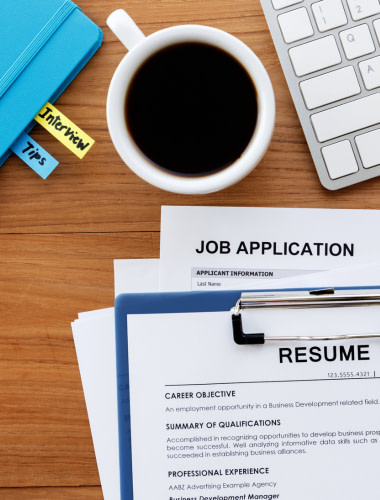
Are you looking for a job?
Now that you know how to impress in an interview, you should take a moment to check our current vacancies page.
At 11 Recruitment, we have a range of white-collar temp and perm jobs available. We're always on the lookout for top talent to place with our clients, so we encourage you to apply for any positions that are of interest.
If none of our current vacancies are right for you, you should register for job alerts. Then we’ll be able to notify you when we receive a position that matches your profile.

What are your thoughts?
I'd love to have a conversation with you about this topic - please leave a comment below if you have any thoughts or opinions 🙂
Christian Madsen
Managing Director of 11 Recruitment





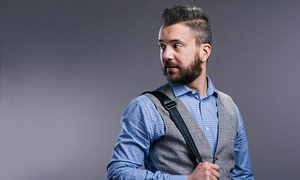
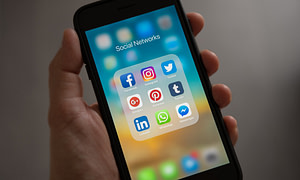







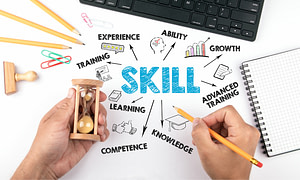
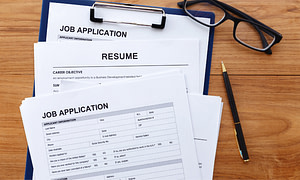


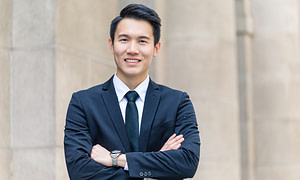


Thanks for the advice – I’ll be sure to apply it during my next job interview 🙂
Do you have any suggestions for how introverts can engage in small talk and make a positive connection with people during the waiting period before an interview?
Hi Melissa, thanks for your comment – I’m glad you enjoyed the article 🙂
Certainly! Here are some tips specifically for introverts:
1. Prepare in advance
Before the interview, research the company and its culture. This can give you some talking points related to the organisation that can be used during small talk.
2. Common ground
Look for common interests or experiences you might share with the person you’re talking to. This can be anything from a shared interest in a hobby to a common experience related to the industry or job.
3. Offer compliments
Offering a genuine compliment is an excellent way to break the ice. Compliment something about the office, their work, or even their choice of decor. Keep it sincere and specific.
4. Open-ended questions
Instead of asking closed-ended questions that can be answered with a simple “yes” or “no,” opt for open-ended questions. This encourages a more extended conversation. For example, instead of asking, “Did you have a good weekend?” you could ask, “What did you do over the weekend?”
5. Listen actively
Pay attention to what the other person is saying. Respond thoughtfully to their comments, and if appropriate, share your own related experiences or thoughts.
6. Consider body language
Pay attention to your body language. Maintain eye contact, smile, and use open and inviting body language. This can help create a more positive and approachable atmosphere.
7. Find a quiet spot
If you’re not comfortable in a crowded waiting area, try to find a quieter spot where you can engage in conversation more comfortably.
8. Use Humour
Humour can be a great way to connect with people. However, be mindful of the context and the other person’s personality to ensure your humour is appropriate.
9. Practice small talk
If small talk doesn’t come naturally to you, practice with friends or family members. It can help you build confidence and become more comfortable in these social situations.
10. Be yourself
Authenticity is key. Don’t try to be someone you’re not. Embrace your introverted nature, but also challenge yourself to step outside your comfort zone in small, manageable ways.
Remember, the goal is not to become a social butterfly but to make a positive connection and create a comfortable atmosphere before the interview. I hope you find this advice helpful!
Please when available interview in office schedule let you know
Kind regards
Nurul Astarini
Hi Nurul, thanks for your comment. We only interview someone when we are considering them for a potential role. If you’re looking for work, I encourage you to check out our current vacancies and apply for any that are of interest: https://11recruitment.com.au/job-seeker-services/current-vacancies/
I wish you all the best in your job search 🙂